→ Continued from “In Conversation with Julian Assange, Part One.”
My archive now contains over 2000 hours of interviews recorded in many different places, and I am constantly attempting to discover new rules of the game, new approaches to how an interview can work. For an interview with Hans-Peter Feldmann published initially in AnOther Magazine and then in book form, I emailed him one question per day, and each of Feldmann’s responses would take the form of an image. For my interview with Louise Bourgeois, I would send a question and she would email back a drawing. When Julian came to my office with Mark and Daniel for our first meeting, we discussed the idea of a different format with questions from artists, and Julian liked this a lot, suggesting that the artists send the questions as short videos so that he could see them. We set the interview for two weeks later at 10 or 11 p.m., as we discovered that we both work late at night. Traveling more than three hours from London on Sunday, February 27, I arrived at Ellingham Hall, the Georgian mansion near the Eastern coast of England that Vaughan Smith offered Julian to use as his address for bail during his UK extradition hearings. In the living room of the picturesque home he described to me as a “golden cage” we drank many cups of coffee and spoke until 3 a.m. about his life, his nomadism, his early beginnings and the invention of WikiLeaks, his time in Egypt, Kenya, Iceland, and other places, his scientific background, and the theoretical underpinnings of WikiLeaks.
The interview is divided into two parts—in the first, published in the previous issue of e-flux journal, I was interested in tracing his work back to its beginnings. I was not interested in his court case or private life, but in his public work as the voice of WikiLeaks, and the experiences and philosophical background that informs such a monumentally polemical project. In the second part, which follows here, Assange responds to questions posed to him by artists Goldin+Senneby, Paul Chan, Metahaven (Daniel van der Velden and Vinca Kruk), Martha Rosler, Luis Camnitzer, Superflex, Philippe Parreno, and Ai Weiwei.
Many people have contributed to making this interview possible, and I would like to extend my sincere thanks to Julian Assange, to all the artists for their questions, to Joseph Farrell, Laura Barlow, Orit Gat, Joseph Redwood-Martinez, Mariana Silva, Anton Vidokle, Julieta Aranda, Brian Kuan Wood, Daniel McClean, Julia Peyton-Jones, Mark Stephens, and Lorraine Two.
—Hans Ulrich Obrist
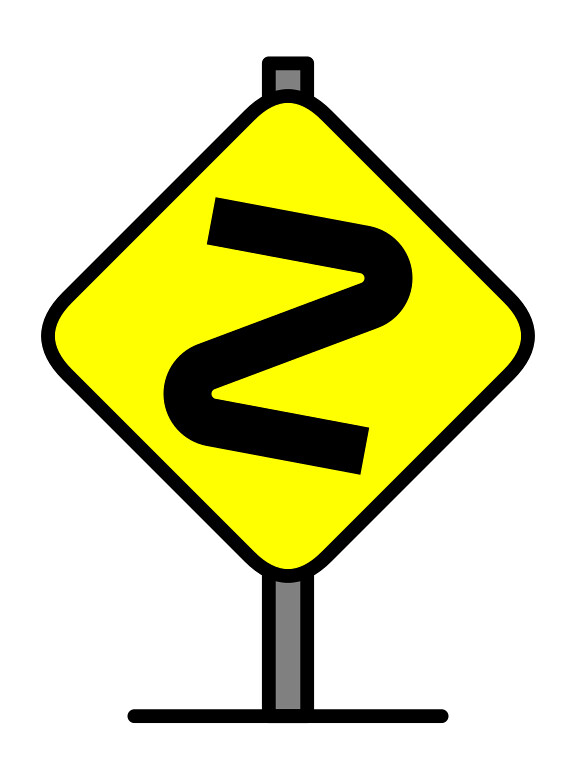

Julian Assange: The Bourbaki were an anonymous group of French mathematicians who published a series of mathematics books over a period of about 20 years under the collective allonym Nicolas Bourbaki. They kept their individual identities anonymous, and their books are still regarded as some of the finest math books ever published in French. In 2006, I saw that WikiLeaks needed to be, if not completely anonymous, then pseudo-anonymous—ideally publishing under a collective allonym such as Bourbaki. First of all, as a young organization publishing very controversial material, we didn’t want to be more of a target than we needed to be. While I was publicly a member of the advisory board, that is different than being the editor in chief or one of the principal writers. I also wanted to remove ego as much as possible from what we were doing, to make sure people were writing and conducting their work for reasons other than ego. Also, as an organization that did not yet have a reputation, we needed a personalized voice to quickly get a reputation. If we pulled our collective efforts into a name like Jack Bourbaki, or another collective allonym, our personality would quickly gain a reputation because of the relatively high level of our output.
But within a month of our coming to the public stage there was a leak of one of our internal mailing lists by a New York architect named John Young, who had been involved in his own primitive, but aggressive publishing project. John saw from the press publicity that WikiLeaks would become significant in the field and might threaten his own project. But it was quite a revelation to have our own leak very early on. And I thought to myself, well, this is very interesting—now we get to taste our own medicine. And actually, this medicine tasted quite nice, in that what I saw was a group of very committed, idealistic people whose internal dialogue was even stronger than their external dialogue. So, there was no hypocrisy in what we were doing, precisely the opposite—we were even more principled and idealistic internally than we were externally.
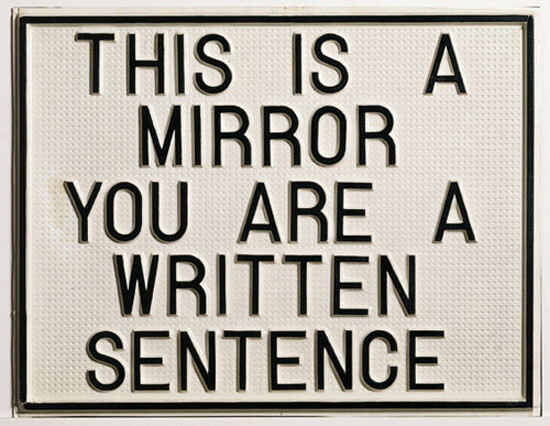

Early on, I already had an existing reputation, and I spent that reputational capital to get volunteer labor from good people. But when the press started sniffing around, very curious as to who some of the principle people in this project were, some of my friends, rather unfortunately, said, well, it’s Julian, and he deserves all the credit. I could’ve shot them! And then I saw that, by trying to engineer a position in which I was not seen as an authority figure for the organization, we ended up with people who were not involved in the organization at all claiming to represent it. And so we started suffering from reputational opportunism, which we had to stamp out. We also grew more politically powerful with many supporters all over the world. So we no longer needed anonymity for ourselves in quite the same way—I still needed locational anonymity for security reasons, but my name being known was not so important anyhow, given that the information was already floating around for anyone who really cared to look.
HUO: This locational anonymity has caused you to move through many different places, and in interviews with you, there is a great deal of discussion about your nomadism going back much earlier. You seemed to be traveling the world with literally just your backpack and two notebooks, just living in people’s houses.
JA: Well, I’ve been traveling all over the world on my own since I was twenty-five, as soon as I had enough money to do it. But for WikiLeaks, I have been consistently on the move since the beginning of 2007. Up until the latest problem with the Pentagon, which started around June/July of last year, it wasn’t a matter of being on the run. It was more about following opportunity and ensuring that I wasn’t in one place long enough to allow for a proper surveillance operation, which involves getting inside and installing video cameras, monitoring all outgoing electronic signals, and so forth. Such operations take time and planning, so if you’re a resource-constrained activist organization facing the prospect of surveillance by some of the most advanced surveillance agencies, such as the National Security Agency and GCHQ, you only have two methods to resist it: one, changing the location of your headquarters with some frequency, and two, complete geographic isolation.
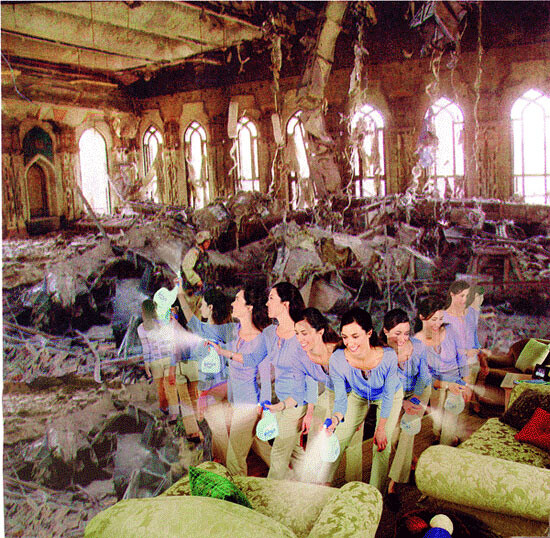

HUO: And you chose the first one?
JA: Yes. I lived in Cairo for a while, and that’s one of the reasons why these events in Egypt have been so interesting to me.
HUO: And Iceland as well, no?
JA: And Iceland, and Germany—many countries. In late 2008, Iceland’s economy collapsed as a result of the general financial crisis. The Icelandic banking sector was 10 times larger than the rest of the Icelandic economy. The largest bank was a bank called Kaupthing, and we got hold of documentation of all the loans that Kaupthing had made, together with very detailed and frank comments about each one—loans of over forty-five million euros, totaling six billion euros. We released this, and Kaupthing then threatened to put us, and any alleged source, in prison in Iceland for a year. They then prevented the main TV station, RUV, from reporting it on their nightly news with an injunction that arrived on the news desk at 6:55 for the 7 o’clock news. The newsreader deadpanned, “well, this is the nightly news, but we can’t bring you all the news there is tonight, as we’ve received an injunction.” So the program showed our website and directed people to WikiLeaks to fill the missing slot. Overnight, WikiLeaks became very important to Icelanders, because the banks and the banksters were perceived to have destroyed a very important part of Iceland’s economy, and to have ruined Iceland’s international reputation.
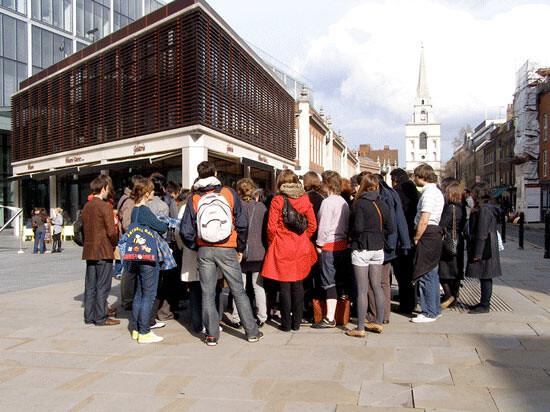

HUO: And was that when the Iceland Modern Media Initiative began?
JA: Yes. After that I was invited to speak in Iceland. I’d had this idea of exposing the nature of offshore banking and secrecy havens—operations such as Bank Julius Baer in the Cayman Islands, and so forth. Regardless of what financial people call these offshore havens, they are actually secrecy havens made explicitly for hiding money flows. The United States military and the CIA were engaged in the same practice in Guantanamo, except there they laundered people through offshore jurisdictions to evade the commonly accepted laws of most countries. And I wondered whether I could devise a system that would turn this on its head. Instead of having a secrecy haven, we could have an openness haven.
The offshore sector works for secrecy havens like this. You have a country like the British Virgin Islands that provides certain corporate and banking structures that are very opaque, and where there are even criminal laws against revealing certain information. Then, neighboring Caribbean states and other small island economies in other parts of the world will take the most attractive parts of this legislation and implement it as well. So competition prompts a gradual ratcheting up of the level of secrecy across these various financial havens. And now the world has a new refugee—publishers. The Rick Ross Institute on Destructive Cults had to move its web service to Stockholm in order to evade lawsuits in the United States. Malaysia Today had to move to Singapore and the United States in order to evade government censorship in Malaysia. We originally had some of our service in the United States and they moved to Stockholm. There was legislative flight, or judicial flight, because a lot of these abuses occur within the judicial system, as part of the process. They’d be exiled.
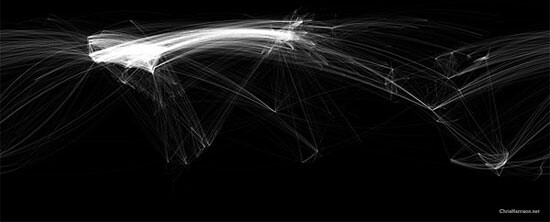

HUO: Involuntarily, as publishing refugees?
JA: Exactly. These publishing refugees have a demand for a certain protective legislative structure, an economic demand similar to the demand of those who want to hide their assets. Well, I couldn’t find an island that was quite right for this, because you also need a few other things—you need a belief that freedom of the press is important, an island with a population and economy large and independent enough to not fall prey to the first major pressure it encounters. You need internet connections that are good for publishing and an educated enough workforce for these internet connections. I actually saw Iceland as the perfect island economy for this kind of haven. And with islands, you can often get new legislation going very quickly because the economy is small enough that you don’t have a whole lot of lobbyists keeping it down. I mentioned this on the biggest Sunday political show in Iceland, and the next day everyone was talking about it. It was clear that a number of Icelanders would also support such a move. I came back and we brought in some thirteen different legislative consultants to think about different ways of pulling it all together. As I was coming from the outside, it was necessary for Icelanders to make the idea their own, or it would never succeed legislatively. It had to become endemic to Iceland. So I worked hard to do this and we got a draft proposal, in Icelandic, put to the Parliament. Then a Parliamentary order was made for the government to draft the legislation, and it passed through the Parliament unanimously.
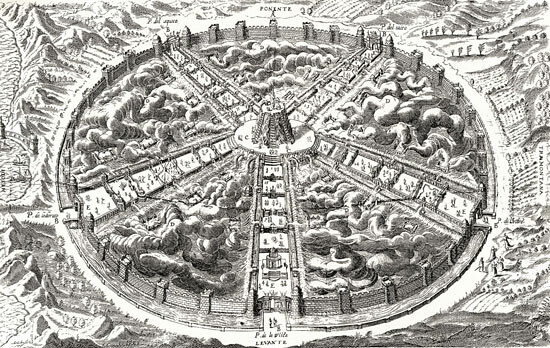

HUO: So perhaps now is a good time for the questions we invited the artists to send.
JA: Okay, let’s start with the first one.
Luis Camnitzer: The first question concerns your high profile in the public media, while Bradley Manning, who seems to be the true hero (at least in terms of US policy documents), has a low profile. I know that WikiLeaks contributed money to Manning’s defense fund and that is great, but it is also not really the issue. WikiLeaks is presumably operating on the basis of collective whistleblowing and contributions of information, and its power therefore comes from being a communal enterprise. Yet, the limelight seems to be on one person and not on the collective. Isn’t the idea here that ultimately we all are, or should be, WikiLeaks? Shouldn’t you reaffirm that point in your public appearances?
The other question concerns the more complex issue of leaking. I am totally in favor of, and applaud transparency, and I don’t have ideological issues with it here. When the issues are clear, like the corruption of the banking system for profit, or the evils of imperialism, the more the better. However, in political terms, it is also a little like watching a poker game and yelling out whatever cards are in everybody’s hands. This may also be fine, except that sometimes it requires judgment with regard to the consequences. Any good game is not about single gambits, but the whole strategy. Exposure may reveal the evil of one move, but ignore the plan that justifies it with those to follow. On this level, the beauty of transparency becomes more difficult to evaluate since what is revealed is always partial and the intent is not always evil. I wouldn’t like to be the judge because I would never feel that I know the full picture. In any case, I would rather denounce the game than the gambits within the game. I therefore vote on the basis of what I know, but I don’t engage unless I am persuaded that I know enough. As an aside, I also wouldn’t like to read all the thoughts of an interlocutor or have that person read all of mine. How does one determine limits? Such a determination necessarily implies really difficult ethical decisions and intricate qualifications. Out of curiosity, and in a non-aggressive way I would ask: What equipped you to play this role?
JA: These are two questions that I’ve been asked often. The first is mischievous, though I’m sure the attempt to play my difficulties off against the difficulties of Mr. Manning not arise endemically from Luis Camnitzer. That is something that is being deliberately hyped by our opponents who care for us. We’re not in a competition for suffering. Rather, Bradley Manning and I, and other people, are being swept up in a very aggressive operation by the United States to advance the interest of certain decision makers in the United States and we must stand united. His plight, of course, deserves more attention, and this organization has spent a significant amount of effort in getting more attention for his plight. Some of that attention will come naturally, as he heads towards trial. He was originally arrested in Baghdad and held in Kuwait for some six weeks before winding up in Quantico, Virginia, where he has been awaiting trial for over 250 days in maximum security and solitary confinement. As someone who has been in maximum security and solitary confinement, I identify strongly with his predicament. It is a dilemma that has now been the subject of criticism by Amnesty International, and I hope will be the subject of much, much more scrutiny.
In relation to the second question, on why it is important to give people information about what is happening behind closed doors, and where the limits lie: we say we believe in transparency, merely because this word is a rather convenient and accepted description for something more complex. I am personally not so fond of that description. Rather, I believe that if we are to build a robust civilization, we need to know what is happening, not necessarily at the very instant it happens, but we need a sophisticated and somewhat comprehensive intellectual record of everything that humanity is about. This is not a matter of simple transparency, but a matter of building up our common intellectual record. And what goes into the intellectual record should actually be everything, unless there is a very good reason for it to not be there, because everything in the world eventually, in one way or another, affects everything else. We need to see power from every angle if we are to understand and shape it. It is the right to know that draws forth the right to speak. And, taken together, we can call these two rights the right to communicate knowledge. There is no need to be too theoretical to show how all this is helpful in practice.
WikiLeaks has a four-year publishing history—one that, given our resources, is something to be immensely proud of. Our work has resulted in tremendous positive change across the world, and—as far as we are aware, and as far as any government official has alleged—it has not directly resulted in harm being done to any individual, other than losing a job, or losing an election. As for where one draws the line in terms of our publishing, well, I think this is far too simple a question. Whenever a person does something, one can recast it into moral form and ask: Is it right? Instead, perhaps, we can cast it the other way: What right does the state have to use coercive force to prevent people from communicating knowledge? If there is an initial communication of knowledge, what right does the state have to use coercive force on second-hand, third-hand, or fourth-hand, or sixth-hand communications of knowledge? Should the state be permitted to do that? I say that it should not. Perhaps, in limited circumstances, the people may grant the state the right to stop the initial communication of knowledge. As for where we draw the line, the postal system does not draw the line—the rights of people to send knowledge through the postal system is absolute. The telephone company does not draw the line. E-mail does not draw the line. The rights to communicate any knowledge through those systems are granted.


HUO: Are there limitations to those rights, or are they unlimited insofar as they are granted?
JA: There is no prior restraint, and there is no view that there should be any prior restraint. After knowledge has been communicated, any attempted restraint is, of course, futile. So, in practice, it is unlimited. Unlike every other news organization, we make a promise about what we will publish and what we will not, and it is very simple. That simplicity gives our sources and our readers confidence in us. We say that we will accept and publish any material that is of diplomatic, political, ethical, or historical significance, which has not been published before, and which is being suppressed—not unpopular material, but material that is being suppressed through classification, through threats of violence, or some other significant force. We promise to publish such material, after it goes through a harm-minimization review. The point of a harm-minimization review is not to prevent material from being published. Rather, it is to either delay publication or remove small parts of a publication for a strictly limited period of time, or until a harmful situation is resolved. It is clear that information should be published if there is no harm in publishing it. It is clear that our harm-minimization process has, to date, been completely successful in its goals. Therefore, we are correct in sticking to our promise to publish everything that is of diplomatic, political, ethical, or historical significance, that has not been published before, and is being suppressed. It is a good policy. It works.
Goldin+Senneby: Hello, my name is Angus Cameron, and I am the spokesman for Swedish artists Goldin+Senneby. Their question begins with a quote:
I meet a being who makes me laugh because he is headless; he holds a steel dagger in his left hand, in his right hand a severed heart, aflame like the Sacred Heart. He is not a man. He is not a God either. He is not me but he is more than me: his stomach is the labyrinth in which he has lost himself, loses me with him, and in which I discover myself as him, in other words as a monster.
—Georges Bataille, The Sacred Conspiracy, 1936
You have stated in previous interviews that your original aim for WikiLeaks was to be “faceless.” You are by no means the first to have sought, and failed to achieve, this sort of transcendent organizational form. Various activist organizations have used secrecy and anonymity as part of their political strategies—you have mentioned the Bourbaki, but there was also Bataille’s Acéphale in the 1930s and the Mexican Zapatista, to name but a few. In all cases, these groups have either ultimately dropped their anonymity or made use of a spokesperson (such as Subcomandante Marcos) whose identity is at least semi-known. What was your strategic and political thinking in becoming the face and voice of WikiLeaks—its “lightning rod,” as you have put it?
JA: Right, so I had a number of reasons for keeping people not completely anonymous, and also for keeping the authority structure of WikiLeaks relatively opaque. But it ended up not being possible for practical reasons, so I have become the lightning rod for the organization. It’s actually quite interesting in trying to get other people to speak for WikiLeaks. We now have Kristinn Hrafnsson, an award-winning Icelandic investigative journalist, who also speaks for the organization. Ad hominem attacks on the organization are directed at its front men. Yet through this mechanism of attracting attacks, we do keep those attacks away from people who are less able to respond to, deal with, or defend themselves against them. This also creates a sort of market that stems the likelihood of others being swept up into ad hominem attacks—simply because our publishing activities consist of putting out information that cannot be attacked by definition. It is absolutely pristine: there has never been a single allegation that we have got something wrong. We’re not writing opinion pieces, though we do sometimes write factual analysis, but the bulk of our publication is raw source material that cannot be attacked as something that has our editorial influence in it. So the only way to attack it becomes, in fact, through an ad hominem attack on the message. It’s a very difficult position to be in, but since I’m already in it, I may as well keep the heat on me, and spare the other members of the organization.
Martha Rosler: Hello Mr. Assange. I have a series of related questions. First, do you consider yourself to have a political position beyond what seems to be a relatively amorphous libertarianism?
JA: Well, I do have a political position, and my political position is that all political philosophies are bankrupt, because they’re not created with a full understanding of how human institutions actually behave. A better question would be: Do I have a political temperament? And I do have a political temperament, which is a combination of libertarianism and the importance of understanding. And what emerges from this temperament is holding power to account through action driven by understanding. So, if you have a libertarian temperament, then you’re temperamentally opposed to authoritarian power. And if you have a temperament that is inclined to understanding, then you want to know what power is about. These two things combined drive forth a position, an intellectual and political position that is about understanding power to such a degree that power is not able to express its most abusive aspects. And I guess my other political positions are not political positions per se, but positions of understanding that most of the world is splitting into just two big power systems. The first is the free markets, which can be very big and powerful when you get to financial markets but can also be distorted by some economic interactions. The other is patronage, and patronage networks—these are really what accounts for, splits, promotes or encourages, and distributes all forms of non-market power. This is not a traditional political position as much as it is a view of the world. Similarly, I’ve independently arrived at a view that is a more modern political concept, which concerns shadow states, which you can see more clearly in newer states in Eastern Europe, such as Bulgaria, where there’s a pantomime at the surface about being a modern EU democracy—not that there really are that many, since the more modern EU democracies also engage in this pantomime. It is simply clearer in states like Bulgaria. Underneath, there is a patronage network that actually controls who gets justice and the distribution of power and wealth within a country. I see that tendency growing in the United States also. In the United States now, there are two rival systems that control the distribution of power. There is the modern form of what we used to call the military-industrial complex or the intelligence complex, and there is Wall Street. These two rival groups are vying to be the central dispensers of power in the United States. I think they are actually loosely coupled to Hillary on the shadow state side, and Obama on the Wall Street side. Actually, it’s quite interesting in the cases against us in the United States to see this rivalry being expressed in the various actions against us.
Martha Rosler: Are you, for example, a social democrat? Do you have any philosophy of the state and of governance that you would care to share?
JA: Oh, that’s one. We’ve spoken about this, but perhaps she’s giving me license to go into it a bit more. I’ll go more into that example in the United States. When I was in Russia in the 1990s, I used to watch NTV in Moscow. NTV was the freest TV I have ever seen. I don’t know if you’re familiar with Spitting Image. It was a British public satire that was very politically aggressive, but NTV and other Russian channels had far more guts. And that was because at that time, Russia had something like 10 independent points of power. It had the army. It had the remnants of the KGB and the external KGB, which ended up becoming the SVR. It had Yeltsin, and his daughter, and that mob. It had some broader mish-mash of bureaucracy that was left over from the Soviet Union. And it had seven oligarchs. That meant, in terms of media control, the state plus the oligarchs with own their own independent media. As a result, you could actually put out almost anything you wanted under the patronage or protection of one of these groups. And when Putin came in, he tamed the oligarchs. Some were arrested, some had their assets seized, and some were exiled. The result was that they fell in under Putin’s centralized patronage pyramid. The ownership of the TV stations also reined popular democracy under Putin’s pyramid. And now, in order to get anything of scale done in Russia, you have to have a sponsor in the pyramid somewhere.
I see in the United States that there is now a rivalry between the modern form of the military industrial complex and Wall Street for this central pyramid. And the military industrial complex has been broadening and expanding its share of that patronage system aggressively. There are now around 900,000 people in United States that have top-secret security clearances. Ten years ago, the National Security Agency dealt with about sixteen private contractors. The National Security Agency is the biggest spy agency in the United States, and its combined budget is more than that of the FBI and CIA combined, or at least it was around eight years ago when I had the last statistic. Now, it has over 1,000 contractors. Similarly, US involvement in Iraq created around 10,000 different private contractors. So the patronage is now moving into the private sector. It’s less contained than it was. Its tentacles are spreading into all walks of our society and the number of people who are connected through family and business relationships, to that structure, continues to increase. My guess is that something like 30 to 40 percent of the US population is now either directly connected to that structure, or one step removed, through family and business relationships. In the past two years, US tax revenue has decreased nearly 25 percent, while the same time the amount of tax revenue flowing through to that sector in the first year of Obama was around 6% to 7%—the amount of money being soaked up by this sector is increasing. So that shows you that as a patronage network it is increasing in its power, because it’s starting to eat up more of the pie, compared to other groups. That’s a real problem for the United States. There’s a vast shadow state of private companies hooked into the secrecy system, into national security system, and an ever-expanding number of new government bureaucracies as well. It’s very worrying that in the United States, that area is heading towards a Putinization. What Putin and the siloviki did to Russia, that system is doing to United States. And it’s not just the US, but a broader Western patronage network.
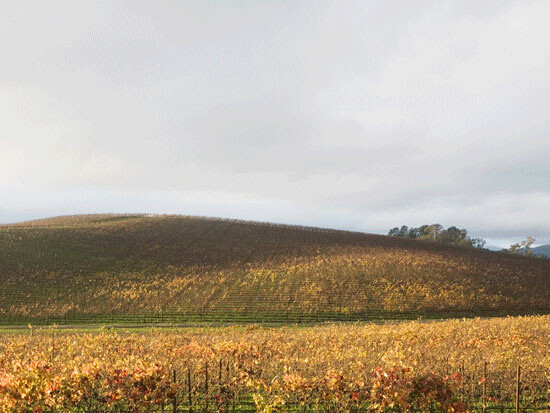

HUO: Do you think the Western world as a whole is being Putinized?
JA: The Western world is slowly being Putinized. It has progressed the most in the United States. But there is a rivalry with the banking sector, and it’s not clear who is going to win. It’s not even clear, as time goes by, that these will even be two separate, rival systems. Rather, the privatization of the national security sector means that, as time goes by, the connections between Wall Street and the national security sector are starting to disappear, because you have shared ownership of, say, Lockheed Martin or Boeing. And then you have cross investments and portfolios and credit default swaps, and so forth, on the functions of these intelligence contractors and military contractors. So, they are actually starting to merge at critical points. But, looking at the behavior of the White House, it’s clear that still within the White House—and in influences upon the White House—that there are still some distinctive differences between these two groups. Obama’s backers are from Wall Street. They are from his banking sector, his big money. And he does not actually have a handle on the intelligence and military patronage network. So it’s like he’s sitting on some cake mix, which is this military intelligence patronage network. As it grows stronger, he just has to sort of rise up with it as it moves in a particular direction. He has to move with it, because he doesn’t have a handle on it. He doesn’t have any spoon he can stick into it to move it around, because his family doesn’t have anything to do with this system. They’re not meshed with the system, so he can’t control it, whereas Hillary has significant connections within that system. And we can look at something like when it was announced that Knopf had signed an 800,000 dollars deal for my book to be published in the US, and I stated that I would use a portion of this money to keep WikiLeaks afloat. Peter T. King, the Chairman of the Homeland Security Committee—a powerful position in United States Congress—wrote to Timothy C. Geithner, the US Treasury Secretary, and personally asked him to add Julian Assange and WikiLeaks as an organization to the US Specially Designated Nationals List, which is the US embargo list. So in the way that Cuba is embargoed from all economic interaction with any US citizen under penalty of criminal action, I, personally, would be embargoed from any economic interaction with any US citizen, and so would WikiLeaks. Timothy C. Geithner then smacked this request back within 48 hours and denied it. It’s very unusual. Geithner is right from the elite of the Wall Street patronage network. And as US Treasury Secretary, he’s remained there. In terms of a diplomatic signal, that was very interesting. As a purely technocratic response, Geithner could have sat on it for two, three weeks, to then reject or accept it for technical reasons. To knock it back so quickly is to say, no, we’re deliberately sending a signal that we don’t want that to happen. And it’s very easy to understand, because the national security, government, and private sector in the United States flourishes from its lack of accountability, from its secrecy. That’s how it’s able to gradually increase its power. But WikiLeaks is holding that power to account. To generate or to encourage the adoption of a position where publishing or revealing information about the national security sector is illegal—or will result in being added to the US Specially Designated Nationals List—is to foster the power and expansion of that national security patronage network at the economic and power expense of the Wall Street network.


Martha Rosler: Do you feel there is any place at all for diplomatic secrecy, for perhaps a limited period, or do you think there should be no secretive negotiations among states and other political actors on the world stage?
JA: This is an interesting question, because when the US revolutionary government first came into power, it did publish all its diplomatic negotiations within a month of their having taken place. So, in fact, ideally, all diplomatic communications would be open. But, in real politics that simply will not happen. That is too ideal a state. I think the new diplomatic standard should be to make all these things as open as possible. There’s a sacrifice that we’re not making, which is to suppose that if people can’t conceal things through secrecy, they can conceal them through complexity instead. And you can see that in the appalling politically correct bureaucratic language how this dynamic is used in some institutions that are held to routine public accountability, where there is no secrecy. Instead, they distort their language and conceal things through complexity or weasel words. But if you had to make a stand, it’s not clear to me which would be the better outcome. The perils of secret communications are so appalling that I suspect we would be better off suffering from political correctness and from increased complexity. But as it’s sort of a short-term thing, given the realpolitik, it makes sense to keep things secret from time to time. It’s a question of who should be keeping the secrets. Of course, it’s the organization itself that is mandated to keep secrets. It’s not the entire bulk of the world population, or even one nation’s population, that is mandated to not spread communication and knowledge to others.
Martha Rosler: Are the US bank details going to be made public anytime soon?
JA: I won’t say when they will be made public. It’s best not to speak about times.
Martha Rosler: Are you going to continue to work with journalists? And if so, why not bloggers, such as Glenn Greenwald?
JA: We work with journalists, bloggers, and NGOs, and that has always been the case and what we’ve made the case. As we’re getting more resources, we’re able to expand the number of people we can work with. It’s really a matter of logistical overhead, in that in a large media organization, you can enter into a negotiation with it and then use all its resources to get something through, whereas dealing with a hundred freelancers or bloggers requires pretty much the same costs, but times a hundred.
HUO: How many people are working for you now?
JA: At the moment we have about twenty.
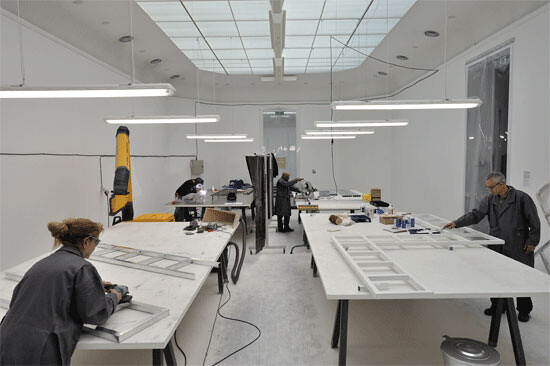

Martha Rosler: Is journalism a public good, and if so, should it be non-commercial?
JA: This is a very interesting question. It concerns the way intellectual information that is cloneable loses its scarcity value almost instantly, and economic interactions are all about scarcity. Intellectual works are inherently different from other economic works, which have built-in scarcity value. For example, this cup in front of us is expensive to duplicate, though it may have been inexpensive to produce. Its value can never be removed to make another cup like it, whereas with a news story or a work of fiction, the cost of producing another digital copy is essentially zero. There is a completely different kind of economy associated with cloneable material, material that can’t have any forced scarcity. For example, E=mc² continues to be important in all sorts of ways, yet it has a scarcity of zero. There is an infinite supply of E=mc², so it should probably be a public good, and in some cases we recognize this. With scientific papers, we understand that once something in science has been discovered to be important, it spreads very quickly. And it is impossible to profit from its scarcity value, or to even keep it scarce. It very quickly becomes an infinite good, and there’s an infinite supply of it. As a result, successful societies have set up mechanisms to fund scientists who produce those very important infinite goods. Perhaps the same could be true for journalism, but the most important journalism is journalism that holds government to account, and holds powerful organizations to account. And there is no significant tradition anywhere in the world of state-funded, aggressive, investigative journalism—this has always been funded by readers or advertisers, which is easy to understand. It is by holding these powerful people to account that the funding gets cut off. So it is not clear how funding such a group would be practical. Maybe one could specify in a constitution that some taxes must go toward this, but then there would need to be a way to administer how this tax, if even collected, is dispensed. That becomes a political function, suffering from all the problems political functions have.
Martha Rosler: You have compared your original conception of WikiLeaks to the mathematics collective with the fictional identity Nicolas Bourbaki, but then decided to allow yourself to become the public face of WikiLeaks. Because of the allegations of sexual misconduct, however, hostile forces (governments and journalists) have attempted to divert the conversation and target the accomplishments of WikiLeaks. Do you regret becoming the face of WikiLeaks? Was your decision to do so a source of friction and dissent among the WikiLeaks volunteers/members?
JA: No, there was no friction or dissent. It was a forced move—there was no choice but to gradually reveal that I was the founder of WikiLeaks. There is something quite interesting, though, that factored into the handling. Earlier on, I was very annoyed by the interest among journalists and the public in the person representing this organization. It was my view that they should just stop writing about us. But actually, we’ve always had this problem of the press writing much more about us than about the material that we release. Now they finally write more about material we release than they do about us. With this, I came to understand that the public is right to want to see individual human beings taking responsibility for the actions of an organization, because if the organization fails in some manner, there is someone to blame for its failures. Our memories are good at coupling actions with individuals, and more complex systems with particular individuals that are responsible for those systems. Those cognitive simplifiers are actually necessary for people to remember and understand and predict the behavior of an organization.
Martha Rosler: Are you willing and able to assist Bradley Manning, or is that better left to others?
JA: We have to be quite careful in how we assist Manning, or other accused sources, in that too much assistance or concrete and citable forms of assistance could be used to infer a connection between the source and us—not in any strictly factual manner, but rather before a jury, or in the court of public opinion. That is something that has needed very delicate handling, and something for which all alleged sources will continue to need delicate handling—on the one hand, in order to support them, but, on the other hand, to avoid making their situation any worse by supporting them. Of course, it would make us look very good to offer local support in different ways, but we would not be doing a favor for these people who are in very difficult situations by being seen as too closely associated with them.
Martha Rosler: Is there an effective way to support you if the US succeeds in extraditing you? Have you set up a cadre to substitute for you if you are incarcerated?
JA: The last time I was incarcerated, WikiLeaks continued publishing. The organization is robust to that extent. As for supporting me if I am extradited, I would say that it would be way too late. If people want to support us, they need to do it before I am extradited, or before any of our other people are arrested. It’s not as if I’m the only one with difficulties. The United States government has detained volunteers and others who have filled in for us at speaking arrangements, or people who are merely trying to raise money for Bradley Manning. These individuals were released, but they have been detained on multiple occasions and have had equipment seized. The FBI has been trying to bribe individuals. There’s an attempt to round people up around Boston. There’s an attempt to find people who may have been acting as intermediaries between sources in the United States and WikiLeaks. But if I’m extradited to the United States, or if one of our other people is arrested in the United States, they will be placed in maximum security for many years while some trial progresses, and their safety in that situation will not be guaranteed. Even if they’re technically innocent under the law, which probably anyone within WikiLeaks is—as I know that our activities are protected under the First Amendment—the verdict is still not guaranteed, due to of the degree of national security sector influence in the judicial process. Such a trial would almost certainly take place in Alexandria, Virginia. That’s where they have deliberately set up the grand jury. There’s a reason why the grand jury is in that location: Alexandria, Virginia has the highest density of military contractors in United States. Their families are all around there, and there is a jury selection rule that states that you cannot disqualify a jury member based on the employment of their spouse. The US government chooses to have all its high-profile national security cases there for precisely that reason.
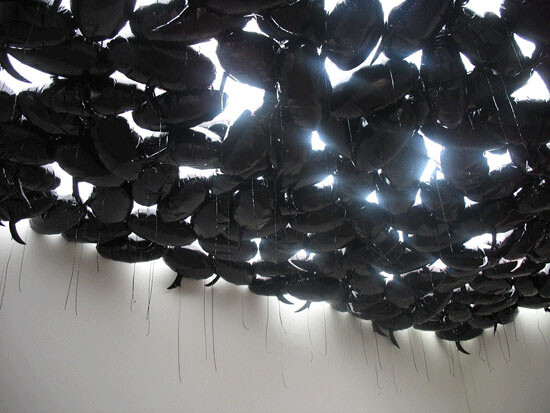

Superflex: Do you not fear that WikiLeaks, because of the very powerful reaction to it by organized structures/systems, will prevent similar types of organizations from emerging in the future, since the same model will be financially, technically, and politically strangled early on? WikiLeaks can do its work now because it has created a global network of supporters, but I fear that other organizations will be destroyed before they manage to reach a larger level of importance or public awareness.
JA: I think the attacks on us by Visa, PayPal, MasterCard, Bank of America, PostFinance, Moneybookers, and other US companies—predominantly banks and financial intermediaries—is the most interesting revelation that has come out of what we’ve been doing. Like the Pentagon Papers case, the reaction and overreaction of the state and other groups involved in it will be seen to be one of the most important outcomes of the revelation itself. What we see is that the United States, in its reaction to us, behaved no differently than the Soviet Union in the 1960s towards Solzhenitsyn, and in the 1970s towards Sakharov, just in a more modern way. Previous censorship actions in the West have been more subtle, more nuanced, and harder to see, but here we have a case of absolutely naked, flagrant, extrajudicial state censorship working through the private sector. I have said before that censorship is always an opportunity. The signal that censorship sends off reveals the fear of reform, and therefore the possibility of reform. In this case, what we see is a clear signal that those structures are not merely hypocritical, but rather that they are threatened in a way that they have not been previously. From this, we can see, on one hand, extraordinary hypocrisy from the entire White House with regard to the importance of the freedom of speech, and, on the other hand, a betrayal of those statements—an awful betrayal of the values of the US Revolution. In spite of this, when such a quantity of quality information is released, we have the opportunity to rattle this structure enough that we have a chance of achieving some significant reforms. Some of those, perhaps, are just being felt, while others will take a while, because of the cascade of cause and effect.


How are we actually dealing with that? We are increasing our sophistication in gaining ways of working around this. We have worked our way around PayPal, Visa, and MasterCard. Bank-to-bank transfers are working now for everything except bank transfers going through Bank of America. If we win, which I think we will, we will continue as an organization, and it will actually be encouraging. Those discouraging financial attacks will be encouraging to other organizations in the sense that we got through them. Regardless of whether we win or lose, they provide encouragement for people to set up alternative financial conveyance structures, and that is a really positive outcome, because the fiscal censorship that was used against us, as a sort of digital McCarthyism, is something that does affect other organizations. It’s rare for it to affect publishing organizations, which is why this case is so remarkable. It’s also rare for it to be used so flagrantly. It’s a fiscal, boycott used against a number of other forms of organizations, such as activist organizations, guerilla organizations, revolutionary organizations from many different parts of the world, or organizations that are simply not large enough and or do not have enough bureaucratic resources to deal with all the incredible paperwork demanded by some of the financial intermediaries. I actually think that’s quite a hopeful outcome.
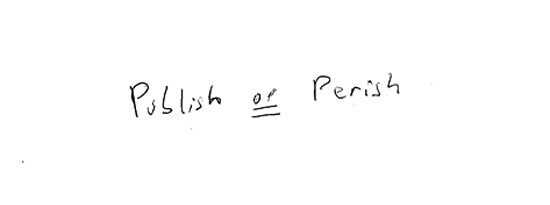

HUO: And it could lead to new structures—new alternative economies and new forms of exchange!
JA: Yes, exactly. New forms of exchange, new forms of currency, new alternative means of economic interaction other than going through banks. And I’ve seen that. It has actually accelerated the development of a number of different projects that aim to provide a new form of exchange.
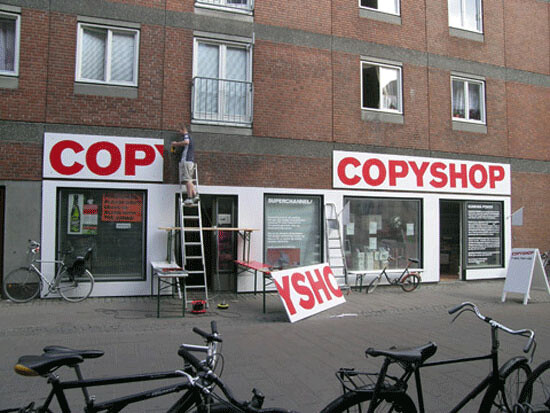

Superflex: What do you think about copyright and intellectual property or the system of rights, as we in Superflex like to call it, and what about the struggle for free culture? What is your opinion on this?
JA: With respect to copyright, I mentioned earlier that intellectual goods that can be copied are inherently different from every other type of good. That is, they do not fall into existing economic theories—they require separate economic theories and a separate type of economy. The example used by Richard Stallman is one I quite like: if you have the ability to make free loaves of bread, you bake your first loaf of bread, and this requires some investment, but every additional loaf of bread you bake is for free. These loaves of bread are so amazing that all you have to do is give one of them to someone else and they can make their own loaves of bread for free, at zero cost. It is actually criminal, then, to not give this to people, because these loaves of bread can go around and feed everyone. Of course, this is an extreme analogy, but for some forms of intellectual goods, it applies. And we can see that it’s actually quite wrong to call them goods—they are something else, and we’re trying to shoehorn an existing understanding of physical matter and economics into something that just does not behave in the same way. WikiLeaks, in practice, receives many copyright threats. According to the more strict definitions of copyright, every single thing we publish breaches copyright. In the more grounded interpretations of copyright, such as those that exist in the United States Constitution, nothing we publish is a breach of copyright because copyright was originally designed—at least following its original political argument and justification—to potentiate a greater economy. It was not there to protect the internal documents of a company from being exposed to the public. And it certainly was not there to protect government documents in cases where the Crown claims copyright over all government documents. The use of copyright to suppress revelations of the abuse of power by companies or governments is, in itself, an abuse of these basic notions that authors, rather than opportunists, should be making the majority of money from the production of books, and those basic notions are what led to the development of copyrights in the first place.
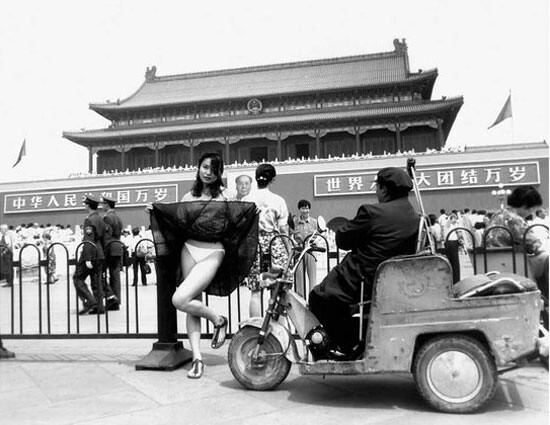

Ai Weiwei: As a perfect example of how individuals can act against collective power, such as the state, what do you think about the future of this trend? How can individuals use their power to question state power?
JA: There are many technical and practical responses to this question. But this is just not a matter of things that may be useful or practical to do. I think a certain philosophical attitude is needed. And it is this attitude that then pulls together the practical considerations that must be part of a realization of that attitude. So, we encourage the people and our supporters to understand that courage is contagious. It’s a practical reality that, for example, most revolutions start in public squares. Why is that? It’s not like there are more people in a public square. You still have the same number of people in the population, whether they are in their homes, in the street, or in the public square. But in a public square, if there are a few courageous people, everyone else in the public square can see the courage of those individuals and it starts to spread.
HUO: Like in Egypt last month?
JA: Just as in Egypt. And the more it spreads, the more it spreads, and at some point there’s a runaway cascade, and people realize that they are the ones with the numbers. This is why Tiananmen Square is so heavily policed in China, because it’s a congregation point where courage can spread like a contagion. I think first it’s necessary to have an understanding that one is either a participant in history or a victim of it, and that there is no other option. It is actually not possible to remove oneself from history, because of the nature of economic interaction, and the nature of intellectual interaction. Hence, it is not possible to break oneself off. Once you have this understanding that you can either be a victim of history or a participant, I say that because no one wants to be a victim, one must therefore be a participant, and in being a participant, the most important thing to understand is that your behavior affects other people’s behavior, and your courage will inspire actions. On the other hand, a lack of courage will suppress them. There’s another view I have about how to frame how one proceeds. Many people say, oh, Julian, you’re being very courageous with what you’re doing, and therefore you must be fearless. I say, no, I feel fear just like any other person. In fact, people who don’t feel fear are dangerous to themselves and to others. Fear is a very good and important instinct to have. Courage is not the absence of fear. On the contrary, courage is the intellectual mastery of fear. Courage is all about understanding—understanding what the terrain is, and understanding your own abilities and limits in order to thereby plot a safe and effective path through the terrain. It is not about foolishly and fearlessly engaging an opponent. It’s about understanding first, and then carefully and decisively engaging the opponent.
Metahaven: First, is WikiLeaks a movement rather than an organization?
JA: The values that I have espoused and hold dear, and have put into the DNA of WikiLeaks, which have then been expressed by WikiLeaks as an organism, as a functional organization, have inspired a movement. There’s an interaction between the organization and this movement, which is fluid, but it is also a distinct, operational group. Independent sub-operations have now sprung up everywhere, and these sub-operations interact with us. So I suppose that this could actually be like most movements, where there is an inner core and there is widespread support among people, and then there is more organized local support.
Metahaven: WikiLeaks has a great deal of support in the third world. Why is that?
JA: For the third world, we do have really, very strong support. And in languages other than English, we have stronger support than in English-speaking countries. The reason seems to be that we have done a lot of work over the past four years in many different countries. But the highest profile work we’ve done has been in the past six months. And that work is related to the United States, which has attacked us in an aggressive manner. In August, the Pentagon made an ultimatum that this organization and I, personally, must destroy everything that we had ever published about the Pentagon, including all upcoming publications, and cease to deal with US military whistleblowers, and if we did not agree to do that, we would be compelled to do so. When asked by a reporter at the press conference which mechanism would be used to compel us, Geoff Morrell, the Pentagon spokesperson, stated that the Department of Defense was not concerned about matters of law. The third world, the developing world, has been continually placed in a subservient role to Western nations over the past 200 years or more, and in particular has been frequently exploited and victimized by United States since World War II. So there is a natural affinity for our position from small states and other organizations that have suffered as a result of US support for dictatorships within those countries, or for other forms of abuse of those populations.
Metahaven: Our final question: Can art play a role in advancing the cause of WikiLeaks?
JA: Of course. I wouldn’t be doing this interview if I didn’t think that art could play a role in supporting us. At the moment, the ideological front line has been drawn, and we’re now engaged in bitter trench warfare, insofar as the mainstream press is concerned. We have a large number of people on the outside, there are a large number of opponents, and this front line takes a lot of energy to move. The press has an influence on the bulk of the population, but actually there are places where there are no front lines, yet. The art world has a way of coming through in a more indirect manner, pulling on people’s emotions in a way they weren’t expecting. Similarly, just in terms of practical connections, the art world is able to reach powerful people through the back door, through their sons and daughters, through their wives, through their grandmothers, and through moments when they’re least expecting it. In this way, I believe that if the art world is able to distill some of the important values of what we’re doing, and the lessons to be learned from the opposition to what we’re doing, and present it in such a way that it calls on the better values of these people, or the values that they aspire to, then this is a psychological inroad into particular sections of the culture that are connected to people who oppose us and who would support us, but who do not yet.
Paul Chan: Recently, a Slovenian philosopher wrote about you, comparing you to the Joker in Batman movies. It seems flattering, but I wonder. I wanted to first ask you whether or not you think that comparison is right, and, if not, if there are other characters in movies or in literature, or even in philosophy, that you identify with.
My second question is more general. Are there pieces of text or a book or work of literature that you read or return to, to find sources of thought or imagination as you fight with what seems to be every government on earth? I’m just curious to know where you find your imaginative resources as you go through the extradition trial and all the things that you have gone through. Lastly, thanks for what you’re doing—good luck.
JA: They’re two very good questions, actually. Unexpected. I have read that Žižek piece. I actually am rather fond of Žižek, but that piece was facile. I had the impression that he actually doesn’t know much about the situation and was responding to market demand and writing quickly. So I was struck when I saw a video of a lecture by Žižek—not just by his curiously autistic lecturing style in which he keeps pulling at his t-shirt, but rather exactly the same impression that I had. Donald Rumsfeld said that there were known knowns, known unknowns, and unknown unknowns. When I heard Rumsfeld say this, I immediately said, well, he’s missed one permutation, which is that there are unknown knowns. Žižek also spotted this, though it could be true that anyone who’s had some logical math background would. This fear of the Joker that Žižek comes up with is typically of a sort of shallow mainstream media mythmaking, some James Bond villain figure. There’s so much demand for information about us, and about me, at the same time as there are also such strong forces influencing news content in particular directions—not in some sort of conspiratorial sense, with the White House bringing in key editors to tell them to write something, although that actually does happen in relation to national security reportage, and has happened to us. Rather, the general malaise of the powerful spreads down into these large mainstream media groups because they are so close to power, and it travels through editors and journalists all the way down into the general community. That, combined with demand for information about us, which we do not serve, results in people writing, reinterpreting, inventing, or trying to come up with information about us. That then starts to be whipped around, cut and pasted, edited and reedited. The end result of this information cycling is a game of telephone that reveals the internal contours of the media economy, the internal contours of journalists’ minds, and the internal contours of political pressure upon the media economy. Ultimately, it creates myths. It takes small features and makes them large. It takes other large features and makes them small. When you’re actually in the heat of it yourself, you become very aware of it, because you know what really happened, because you were there. To then see the level of distortion grow and grow and grow on its own without any fresh input becomes really quite an interesting process to observe.
As for inspirational texts, well, there isn’t one in particular. But when I was in prison, I read Cancer Ward by Aleksandr Solzhenitsyn, and I’ve been a long-term appreciator of Solzhenitsyn and other Russian literature.


HUO: Who else besides Solzhenitsyn? Tolstoy?
JA: Oh, Pasternak and Dostoyevsky, and yes, Tolstoy when I was younger, and Bulgakov, though he’s a Ukrainian who wrote in Russian. Cancer Ward is a wonderful book. Solzhenitsyn was in a cancer ward after being released from prison and exiled in Siberia, and he draws parallels between experiences in a Soviet labor camp and a hospital ward, but also uses these as a way to get at power relationships within a Sovietized state. But having cancer in a cancer ward is even worse than being locked in the basement of Wandsworth Prison in solitary confinement. So I found it oddly cheering.
HUO: There’s one last question that came in by SMS from Philippe Parreno, and it ties in with Paul Chan’s question: What is the most beautiful story you’ve ever heard?
JA: I’m very fond of Russian children’s cartoons from the 1970s and 80s. These cartoons embody the highest representation of childhood and beauty and innocence and curiosity—all together. This is terribly underappreciated in Western society in this particular period. For something that I find beautiful, this is what comes to mind instantly.

